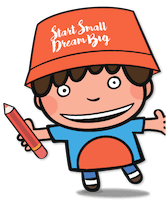Sensorial Connections @ Blk 261
And it’s a wrap!The kids and their families donated a total of $4176.00 for the President’s Challenge!We chose Singapore Association of the Visually Handicapped as our ...
Enhanced curriculum
The center’s niche program is its Little Chef Program, which has received an Innovation Grant. This program allows students to plan a refreshment menu for the level, and every class gets to do this once in term 3 and term 4 each. The students plan their own menu, working together as a class, and go out to buy their own ingredients with their teachers. This is interesting and highly beneficial, with high levels of incidental learning, as the students learn things in many domains, such as counting money, working together in groups during planning and execution, as well as social learning, such as being aware of their peers dietary requirements and allergies, and job allocation. The students do all this with minor assistance by the teachers. The students also get to cook in a fully functional mini kitchen, and will decorate and serve the items to their friends.
Besides this, there is also a small group reading program to supplement the center’s English lessons. This encompasses a steady progression in the learning of the English language, from recognizing sounds and letters to forming words and sentences, then to understanding passages and writing sentences, and finally to comprehension of short passages, answering related questions and writing short essays and stories. Basically, students learn to read in a systematic way that ensures that all areas of reading are covered. Students learn proper grammar, enhance their vocabulary, and learn to see things from a third person point-of-view from the comprehension exercises.
The center’s curriculum follows the MOE guided curriculum that is holistic, with equal emphasis on all six domains to develop a well-rounded and well-exposed child. For language classes, there is more emphasis on hands-on and interactive activities, such as story-telling, drama, picture cards and arts and craft. For Moral Education, students are encouraged to take ownership for their actions and their belongings, and are encouraged to be honest and rational. The crux of the matter is not that they admit to their mistakes, but they also have to reason and rationalize with us as to why they did what they did. Besides this, there is also emphasis on independence.
Field trips and community collaborations
The center brings their children on field trips to places that aren’t easily accessible to them, such as places where they can see behind-the-scenes experiences. These places include Lee Wee Brothers factories, Gourmet Kitchen, Road Safety Park and Jurong Bird Park and Water Play area. These places are also low-cost to ensure that all students have equal opportunity to attend, and “all our fieldtrips have nearly 100% attendance and response,” remarks Miss Adeline Koh, the Principal. After every field trip, students also undergo the LEA (Learning Experience Approach) activities where they write down, very simply, the things that they saw and learnt on the trip.
Other community collaborations include sending the K2 students to Chongzheng Primary School for their P1 experience, where they tour the school and sit in on lessons and CCA sessions, as well as learn to buy food at the canteen, to get a taste of life in primary school. Besides this, ITE has also sent students down to do projects with the students, such as story telling and conducting the Potter Beads workshop, where students get to express their own creativity. Students from Pasir Ris Secondary School also went down to the center to paint the murals outside the school.
